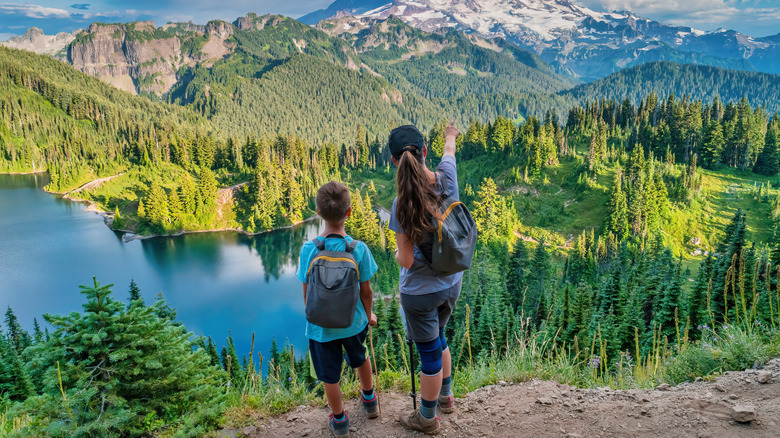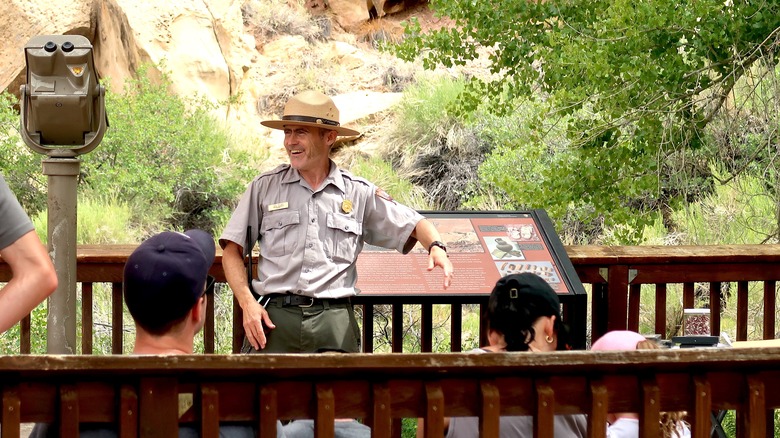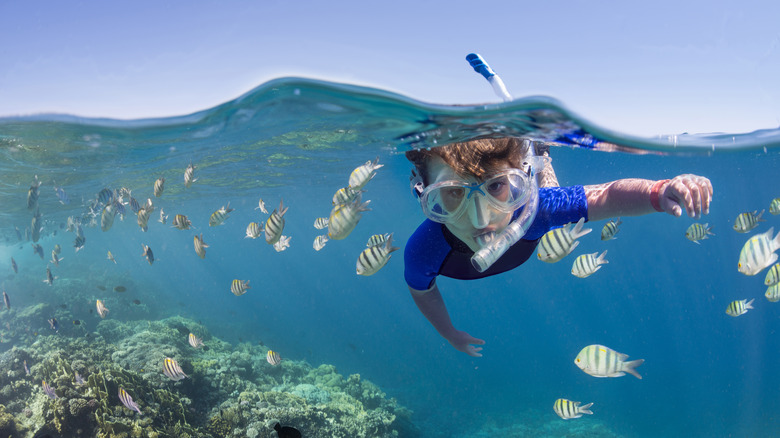National Park Activities You Might Not Know About
When we think about crossing national parks off our bucket list, our minds often drift to visions of beautiful landscapes, serene hiking trails, and the awe-inspiring beauty of unspoiled nature. Yet, beyond the well-trodden paths and popular lookouts lies a treasure trove of lesser-known activities waiting to be discovered. National parks offer a plethora of experiences that extend far beyond the usual hiking and sightseeing.
National parks are not just for outdoor thrill-seekers. Across the country, the National Park Service offers a range of activities for the culturally curious, the history buffs, and those seeking an escape from the city's hustle and bustle. From live music and theatre performances that the whole family can enjoy, to guided meditation walks for those seeking a peaceful and tranquil getaway, there truly is something for everyone at America's national parks.
Read on to discover these lesser-known activities that promise to enrich your next visit. Prepare to be inspired by the diverse range of experiences that await you, and get ready to see our national parks in a new light.
Compass & GPS activities
Learning to navigate with a compass is a timeless skill that not only connects us to early explorers and pioneers. But beyond that, knowing how to use a compass is an essential skill for exploring the outdoors. A compass could save your life if you get lost in the woods. But for those of us who are dependent on our cell phones, learning to orient with a compass can be daunting.
Luckily, many national parks offer compass navigation courses or orienteering workshops. During these sessions, participants learn the basics of using a compass, reading maps, and plotting courses. These activities often involve guided hikes where participants can practice their newfound skills by navigating through various terrains to reach designated checkpoints. Other times, the park rangers transform their lessons into fun games, where you can hunt for hidden treasure in the park — real or not, you'll have to find out!
Interpretive ranger talks
Many park explorers love to go it on their own, finding merit in uncovering the secrets hidden within national parks by themselves. But, it is also incredibly easy to miss out on certain gems when you don't know the lay of the land. Some of the most enriching and engaging activities available at national parks are interpretive ranger talks. Frankly, there are some secrets that only park rangers know. They are experts in the park's ecosystem, geology, history, and cultural heritage. These rangers are skilled interpreters, capable of conveying complex information in an accessible and captivating manner for visitors of all ages. Attending these educational sessions can offer all visitors a deeper understanding of the park's natural, cultural, and historical significance.
Interpretive ranger talks come in many forms, depending on the park you are visiting. Almost all parks will offer short presentations at visitor centers when you enter. Guided walks along scenic trails and evening campfire talks are also pretty easy to come by. Beyond these, select parks offer cultural and historical presentations of human history at the park, sharing stories about Indigenous cultures and early settlers. Animal lovers can find programs to observe the wildlife native to the park. After dark, you may even be able to go stargazing with a guide — a beautiful sight to behold without all of the light pollution found in cities.
Diving & snorkeling
National parks don't just boast mountainous, rocky, and sandy landscapes. There is a whole underwater world of aquatic ecosystems to explore too. Marine national parks such as Biscayne National Park in Florida, and Channel Islands National Park in California are renowned for their vibrant underwater ecosystems. These parks protect extensive coral reefs, kelp forests, and a variety of marine life, making them ideal destinations for underwater exploration.
Diving and snorkeling in these parks allow visitors to witness the dazzling diversity of fish, sea turtles, and other marine creatures in and around coral reefs. Often referred to as the "rainforests of the sea" due to their biodiversity, coral reefs are stunning formations. Snorkelers can float above them, while divers explore deeper sections, discovering hidden nooks and crannies where exotic species reside.
Beyond extensive coral reef systems that sustain the majority of aquatic life, some parks have established underwater trails, complete with interpretive signs. These trails may be semiaquatic — where you can visit spring water — or fully submerged so that snorkelers and divers can visit and learn about notable aquatic features and habitats.
Equipped sports facilities
While national parks are primarily known for their natural beauty and outdoor adventures, many also offer a variety of sports facilities that cater to visitors looking for more structured physical activities. These facilities provide opportunities for recreation and fitness amidst stunning natural settings, making them ideal for sports enthusiasts of all ages and skill levels.
Several national parks are equipped with tennis and basketball courts. They are often well-maintained and available on a first-come, first-serve basis. Other national parks boast golf courses for those seeking a unique blend of challenge and scenic beauty. These courses integrate with the natural environment, providing a memorable experience. For daring explorers, some national parks are famous for their rock climbing and bouldering courses. There are usually designated climbing areas with routes that range from beginner to expert levels, so even novices can partake. In the winter, where parks find suitable conditions, some parks have trails, rental shops, and facilities for skiing, snowboarding, and snowshoeing.




